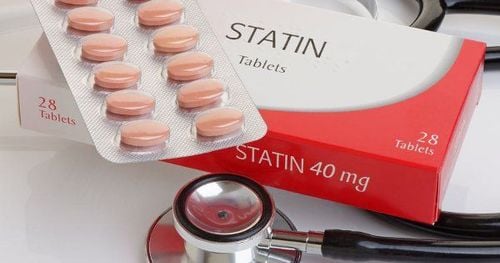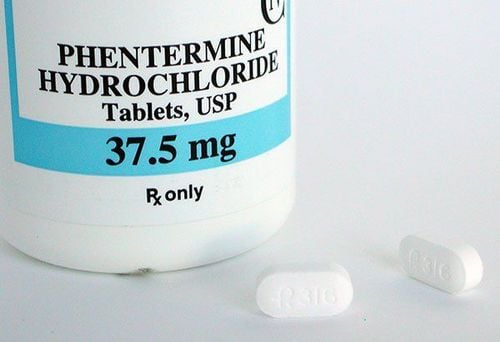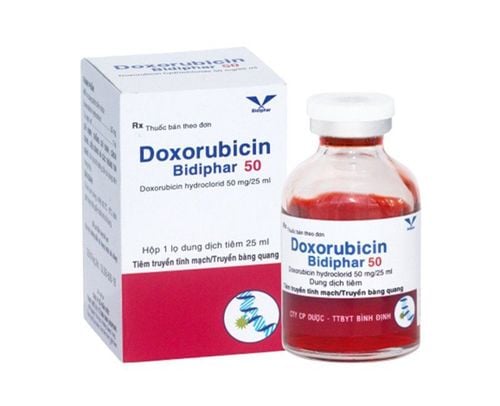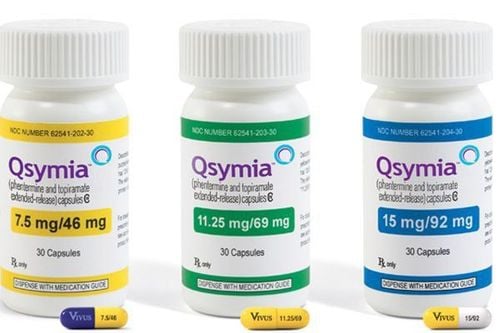This is an automatically translated article.
The article was professionally consulted by Specialist Doctor I Le Nguyen Hong Tram - Gastroenterologist - Department of Medical Examination & Internal Medicine - Vinmec Nha Trang International General Hospital.1. Overview of non-alcoholic fatty liver
Triglycerides are a form of fat commonly found in our diets and are also formed in the liver. The liver then converts it into energy and develops cells. When that process is interrupted or slowed down, fat will begin to accumulate in the liver cells and cause fatty liver. Fatty liver disorders are classified into alcoholic fatty liver and non-alcoholic fatty liver.
Fatty degeneration : A mild form of fatty liver disorder that does not damage the liver, nor cause symptoms. But if left too long can lead to progressive condition. Non-alcoholic steatohepatitis (NASH): An inflammation in and around fatty liver cells. Symptoms can range from mild to severe. It can lead to irreversible liver conditions: cirrhosis, liver failure and primary liver cancer.
2. Causes of Non-Alcoholic Fatty Liver
There are many factors that contribute to the formation of fatty liver disease, which typically include:Diet too high in sugar and fat, irregular lifestyle. Some diseases such as type 2 diabetes, hypothyroidism, dyslipidemia, genetic disorders of metabolism. People who are overweight with a BMI of 25-30 and obese with a BMI >30. Inheritance in families with many obese people. People who are using some drugs such as corticosteroids, female sex hormone drugs, tetracyclines, anticancer drugs... Hepatitis B, C. Not responding to insulin as usual (insulin resistance). People with high triglycerides or bad cholesterol (LDL), or low levels of good cholesterol (HDL). However, some people can develop fatty liver even if they don't have any of the above characteristics.
Of the factors above, obesity is the most obvious risk factor. Up to 70% of people with obesity have NASH, while only 10-15% of people with normal weight have NASH. In addition, regardless of weight, an overweight person, with too much belly fat, the possibility of fatty liver is quite high.
NAFLD is also the most common form of liver disease in children. A study published in 2016 said it affects 10-20% of pediatric patients and 50-80% of children who are obese. About 25% of pediatric patients with NASH will develop cirrhosis within 10 years, with those with obesity having a higher risk.
Many scientists predict: "Within the next 10 years, non-alcoholic fatty liver disease (NAFLD) will become the cause of liver disease, cirrhosis and indication for liver transplantation in developed countries".
3. Measures to diagnose non-alcoholic fatty liver
Because the disease has almost no obvious symptoms, people often discover fatty liver disorder when tested for another disease. Some methods to help diagnose fatty liver include:Blood tests: Liver function tests can show abnormalities in liver enzymes and hormone levels. Abdominal imaging & ultrasound, computed tomography and magnetic resonance imaging can detect signs of fatty liver. Liver biopsy: A method to accurately determine the diagnosis of fatty liver as well as the serious condition of the liver.
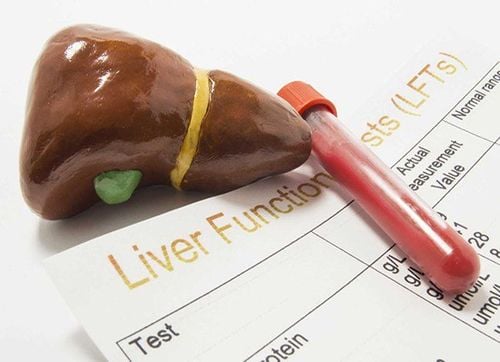
4. Notes in the treatment of non-alcoholic fatty liver
Although fatty liver is not dangerous, if not prevented, it will progress to NASH and will have cirrhosis within 10 years. In addition, NAFLD will also lead to other diseases such as cardiovascular disease, kidney disease... Therefore, if you are diagnosed with this disease, you should do the following to avoid making the disease worse:Reduce Weight loss is the first step in lowering levels of liver enzymes, insulin, and possibly improving quality of life. Weight loss should be planned slowly (no more than 1.6 kg per week) to avoid liver damage. You can consult your doctor about a good weight loss plan. Strictly following the drug regimen as directed by the doctor also helps eliminate excessive fat deposition in the body, helping to control the adverse progression of diseases that cause fatty liver. Most people with nonalcoholic fatty liver disease will not develop any serious complications if the disease is detected and treated early, so the way to treat and prevent the disease is to adopt a healthy lifestyle, diet, and lifestyle. Drink a varied, balanced diet and exercise regularly. At the same time, you should learn about the types of nutrients that are useful for liver disease. To detect and treat fatty liver early, anyone should perform a regular health checkup every 6 months - 1 year. In addition, performing some of the above tests is also an effective way to detect the existence of the disease, thereby taking timely remedial measures.
Patients with fatty liver can go to Vinmec International General Hospital for examination and treatment. Vinmec gathers a team of well-trained, professional and experienced gastroenterology specialists; system of modern equipment, meeting international standards; Professional service quality, high efficiency in diagnosis and treatment.
Specialist I Le Nguyen Hong Tram graduated as a Doctor of General Internal Medicine at the University of Medicine and Pharmacy in Ho Chi Minh City. Ho Chi Minh, doctor has many years of experience in the examination and treatment of gastrointestinal diseases, especially gastrointestinal - hepatobiliary diseases, gastrointestinal endoscopy and general internal diseases. Currently, Dr. Tram is working at the Department of Medical Examination and Internal Medicine, Vinmec Nha Trang International General Hospital.
Please dial HOTLINE for more information or register for an appointment HERE. Download MyVinmec app to make appointments faster and to manage your bookings easily.





